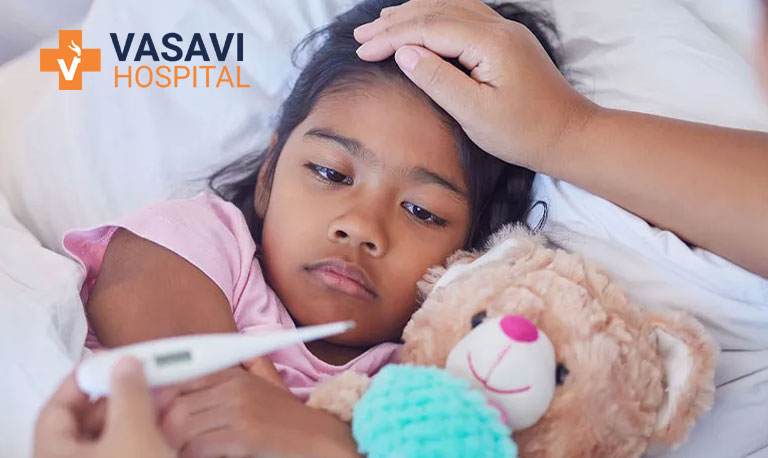
Malaria and other mosquito-borne Diseases
Malaria and other mosquito-borne Diseases
Mosquitoes are a common problem in roughly 150 nations. Not only do these pests buzz in our ears, but they also bite and spread diseases including malaria, dengue fever, yellow fever, and chikungunya. Approximately 500 million diseases and 1 million deaths can be attributed to mosquitoes annually. Mosquito-borne illnesses cause an estimated 40 million deaths every year in India. In warm climes, mosquitoes frequently transmit diseases that are not communicable to humans. Mosquitoes don't hibernate in the tropics since the climate is ideal for their year-round survival.
To what extent may a mosquito act as a vector for disease? In addition to acting as a reservoir for disease-causing microorganisms, mosquitoes can also disseminate them. These parasite organisms enter a mosquito's body when it feeds on an infected host (domestic or wild animals, or even humans). The mosquito serves as a host while the parasite develops and reproduces. Mosquitoes harboring the bacterium that causes the sickness attack healthy people, spreading the infection.
Infections spread primarily by mosquitoes in India Malaria
The malaria parasites cause a severe febrile illness. Female Anopheles mosquitoes, which are responsible for transmitting these parasites to humans, are most active from around 9 p.m. to 5 a.m. Malaria's early symptoms—a fever, headache, and chills—may be subtle and hard to spot. They usually show up 10 to 15 days after being bitten by an infected insect. Malaria caused by the P. falciparum species can become life-threatening in less than 24 hours if it is not treated. There is an increased risk of malaria and severe sickness for infants, young children, pregnant women, HIV/AIDS patients, and anybody else with a compromised immune system who moves to areas with high malaria transmission rates, including migrant workers, mobile communities, and travellers.
Dengue
Female mosquitoes, especially those of the species Aedes aegypti and, to a lesser extent, Ae. albopictus, which frequently bite during the day, carry the dengue virus, which causes dengue fever, sometimes known as "backbone fever." The Zika, yellow fever, and chikungunya viruses are all carried by mosquitoes. A severe dengue infection can cause internal bleeding, organ damage, and plasma leakage, but it is uncommon. The risk of death from severe dengue is increased by improper treatment. According to research on the spread of dengue, an estimated 3.9 billion people are at risk of infection.
Chikungunya
The Chikungunya virus causes Chikungunya, an infectious disease (CHIKV). The virus is spread to humans by two types of mosquitoes, Aedes albopictus and Aedes aegypti. Symptoms of chikungunya usually begin a week after infection. Joint pain and swelling are common symptoms of chikungunya, which is characterised by a high fever that develops suddenly. Aching in the joints is not always temporary; it can continue for days, weeks, months, or even years. It can be even more excruciating than a dengue fever attack. Chikungunya causes a more severe bodily discomfort than dengue fever. Some people may have rashes, fatigue, headaches, and sore muscles.
mosquito-borne disease symptoms Most people who are infected by mosquitoes only have mild symptoms. In most cases, people get a mild fever, headaches, body aches, nausea, vomiting, and a rash. However, serious illness can occur if the disease-causing bacteria harms brain tissues or the membranes protecting the brain and spinal cord (encephalitis and meningitis, respectively).
Warning indications indicating the patient needs immediate medical attention may appear in extreme cases. Some of these are:
- Gradually increasing fever
- Headache
- Discharges containing blood or clots
- Shuddering muscles
- Tremors
- Seizures
- Irresistible need to throw up or experience nausea
- Confusions \ Treatment
Most mosquito-borne diseases lack effective medical interventions. Malaria can be treated with simple pills, but dengue and chikungunya, both of which are caused by viruses, require supportive care and, if problems arise, organ-specific treatment. Pain, fever, and rashes are just some of the symptoms that might be alleviated with medication. Sometimes, it gets to the point where you need to be hospitalised.
Prevention
Not being able to immunise against or treat these diseases makes preventative actions all the more important. Precautions should be taken to reduce the risk of catching a disease spread by a vector. Among the preventive measures are:
Insecticides & Repellents
There are a plethora of insect repellents available, including coils, sprays, liquid vaporizers, and many others. Using these repellents can help keep mosquitoes away and reduce the likelihood of acquiring a mosquito-borne illness. Insect repellents containing DEET (diethyltoluamide) are highly efficient at preventing bites. Before using, be careful to check the label.
Absorption of Water
Having access to standing water is like gold to mosquitoes. Open water containers can serve as breeding grounds, thus it's best to use containers with lids. Eliminating mosquito breeding grounds requires routine maintenance on all water storage containers. Buckets, coolers, flowerpots, and other household containers need new water frequently.
Spacious, Clean, and Tidy
Get rid of damaged buckets, cartons, drums, and cans, as well as other trash, to reduce the likelihood of water buildup in your immediate area. To prevent the spread of germs and bacteria, it is also important to routinely disinfect the roof, floors, and furnishings.
Pest control measures
Mozzie screens can serve two purposes: preventing the intrusion of pesky insects and allowing fresh air into the space. These protective covers, resembling mesh, are installed over doors and windows to keep mosquitoes out while yet allowing air circulation.
Staying in would be preferable to go out at busy times
The hours between sunset and sunrise are peak feeding times for mosquitoes. You should really try to stay inside during those times. In the event that you really must go outside, don't forget to apply mosquito repellent.
Safekeeping on the road
Wearing layers helps, but avoiding skin exposure is the best way to avoid mosquito bites. If you plan on spending the night outside, be sure to bring along some insect repellent and sleeping netting.
Is it safe to use mosquito repellents? Avoiding mosquito bites is possible with the right mosquito repellent. Mosquito nets and mosquito bats are the most reliable means of preventing mosquito bites in children. You can apply most types of lotions, creams, and roll-ons without worry (depending on the composition). When used properly, liquid vaporizers provide no significant health risks (avoid accidental ingestion by kids). Mosquito coils are highly effective in the home, however they should not be used around children due to the risk of aggravating asthma and allergies and causing respiratory problems. DEET-based insect repellents are harmless, however infrequent side effects have been observed. These are typically the result of incorrect use. This category includes skin reactions, allergic reactions, neurological and cardiovascular adverse effects, and encephalopathy in youngsters.
Preventative measures are the most effective means of protecting oneself from the diseases spread by these pesky little organisms. Take as many preventative measures as possible to keep disease-carrying mosquitoes away from you and your loved ones.
Information Doctor Profile : www.vasavihospital.in/doctors_profile



0 comments